Hong Kong district council election: voting ends after extension until midnight for first ‘patriots-only’ municipal body poll
The overall turnout rate was not available at publication time but had reached 24.53 per cent at the last recorded time at 7.30pm.
Since Hong Kong returned to Chinese rule in 1997, previous lows in voter turnout for district council polls were 35.82 per cent in 1999 and 38.83 per cent in 2007. The highest turnout came during the previous municipal-body election in 2019, when the participation rate hit 71.23 per cent
The turnout on Sunday for the district committees constituency election was 96.92 per cent, with 2,454 selected voters casting ballots.
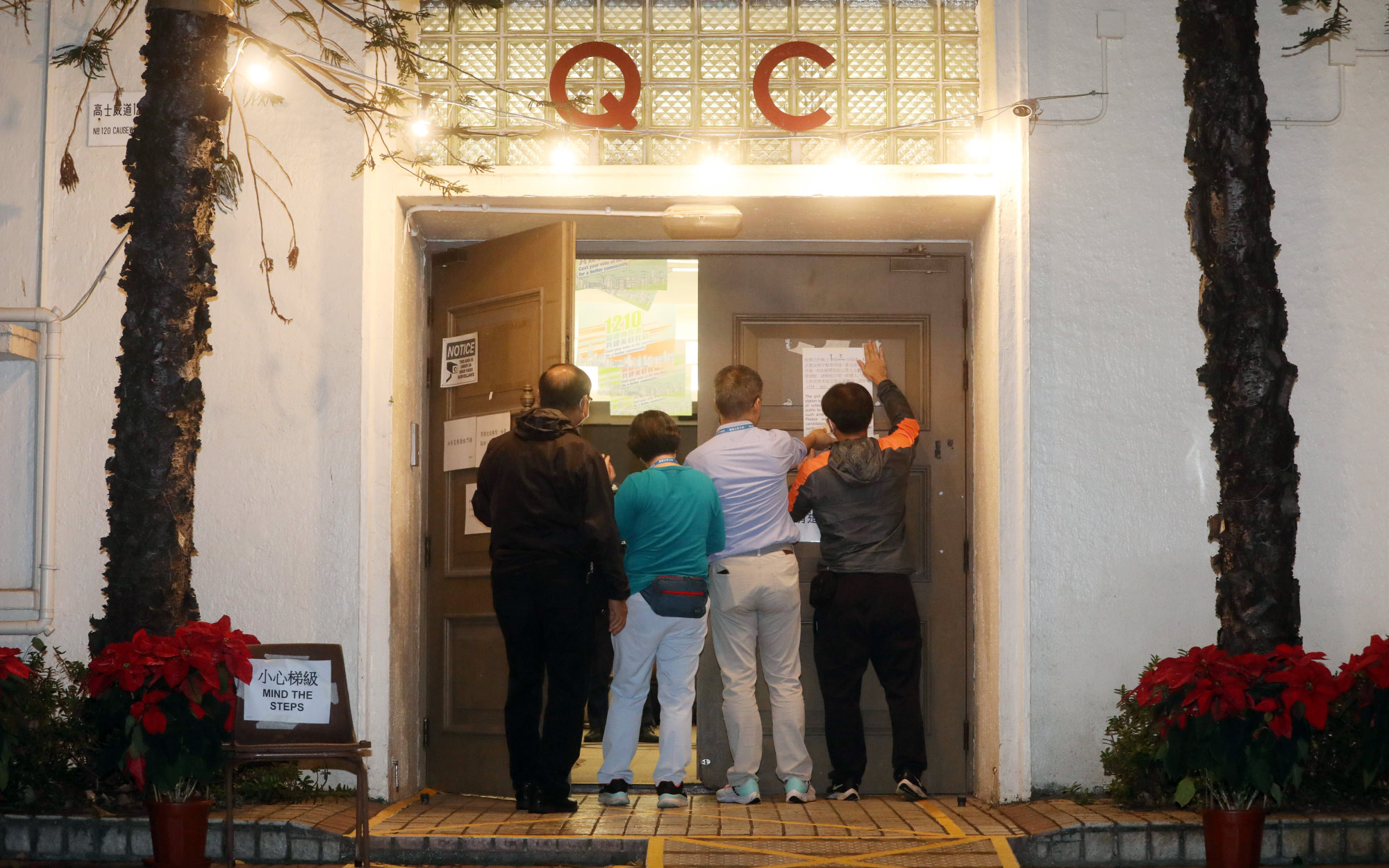
“With this new chapter, the district councils from now on will serve the public and do their job. We need to explain and introduce this important matter to residents clearly,” he said.
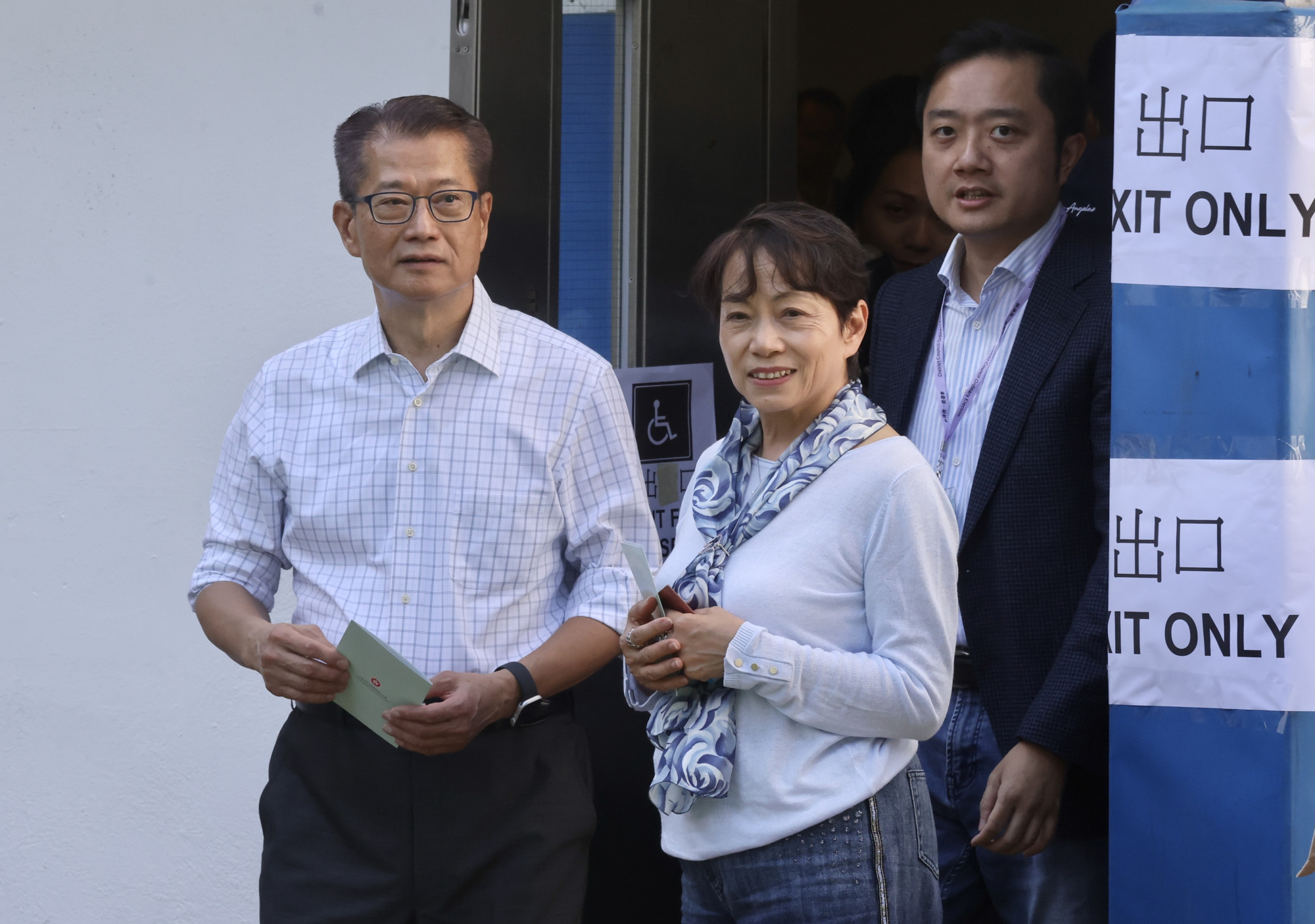
Electoral Affairs Commission chairman Mr Justice David Lok Kai-hong dismissed suggestions the turnout was being boosted by the longer voting hours, saying an extension would not result in more people deciding to cast ballots.
“We really haven’t thought about how to drive the turnout,” Lok said, explaining how the failure had to do with a backend database glitch. “There’s no point in trying to increase turnout if people aren’t going to vote in the first place.”
Gary Chan Hak-kan, chairman of the Democratic Alliance for the Betterment and Progress of Hong Kong, said it was a suitable arrangement to extend voting hours, but noted it had brought inconvenience to some residents.
Other political party leaders, including New People’s Party chairwoman Regina Ip Lau Suk-yee and Stanley Ng Chau-pei, president of the Federation of Trade Unions, said the technical issue would deal a blow to voting and demanded a clear explanation from the government.
Residents began trickling into polling stations at 8.30am amid a heavy police presence and under the watchful eyes of anti-fraud officers who later in the day arrested six people for, including three activists, allegedly inciting others to cast invalid votes or not at all.
Cross-border voters praise Hong Kong government efforts to help them cast ballots
Voting was briefly interrupted just after 8pm when the computer system managed by the Registration and Electoral Office went down, creating short queues at several polling stations before operations were restored.
With no opposition candidates securing sufficient nominations to qualify to run – an absence some observers said sapped public interest – attention focused mainly on turnout as a gauge of the level of public acceptance of the new electoral system.
While officials had refused to be pinned down on the figure being a credible measure of the election’s success, the stance did not dampen their weeks-long effort to drum up enthusiasm for the poll, which culminated with a concert replete with drones and fireworks that drew thousands of people a day earlier.
Lee defended the all-out effort to get people to vote and repeatedly said the government had a responsibility to inform the public that the district councils were not what they used to be. In the previous poll, opposition candidates scored big wins riding on a pledge to resist Beijing and the local government.
The district councils were revamped to align with Beijing’s “patriots-only” policy, with the proportion of directly elected seats slashed from almost 95 per cent of the total to less than 20 per cent.
Hong Kong officials take to streets in eleventh-hour appeal to boost election turnout
About 4.3 million registered voters could cast ballots for 88 directly elected seats, out of 470 in total. The city’s leader will choose 179 others, local committees will decide another 176, and rural leaders will hold the remaining 27 seats.
The parties fielded mostly younger candidates, with a Post calculation determining the average age of the 171 running in the enlarged geographical constituencies to be 38. Ten candidates, including TV host Adrianna Sung Chih-ling, did not disclose their age.
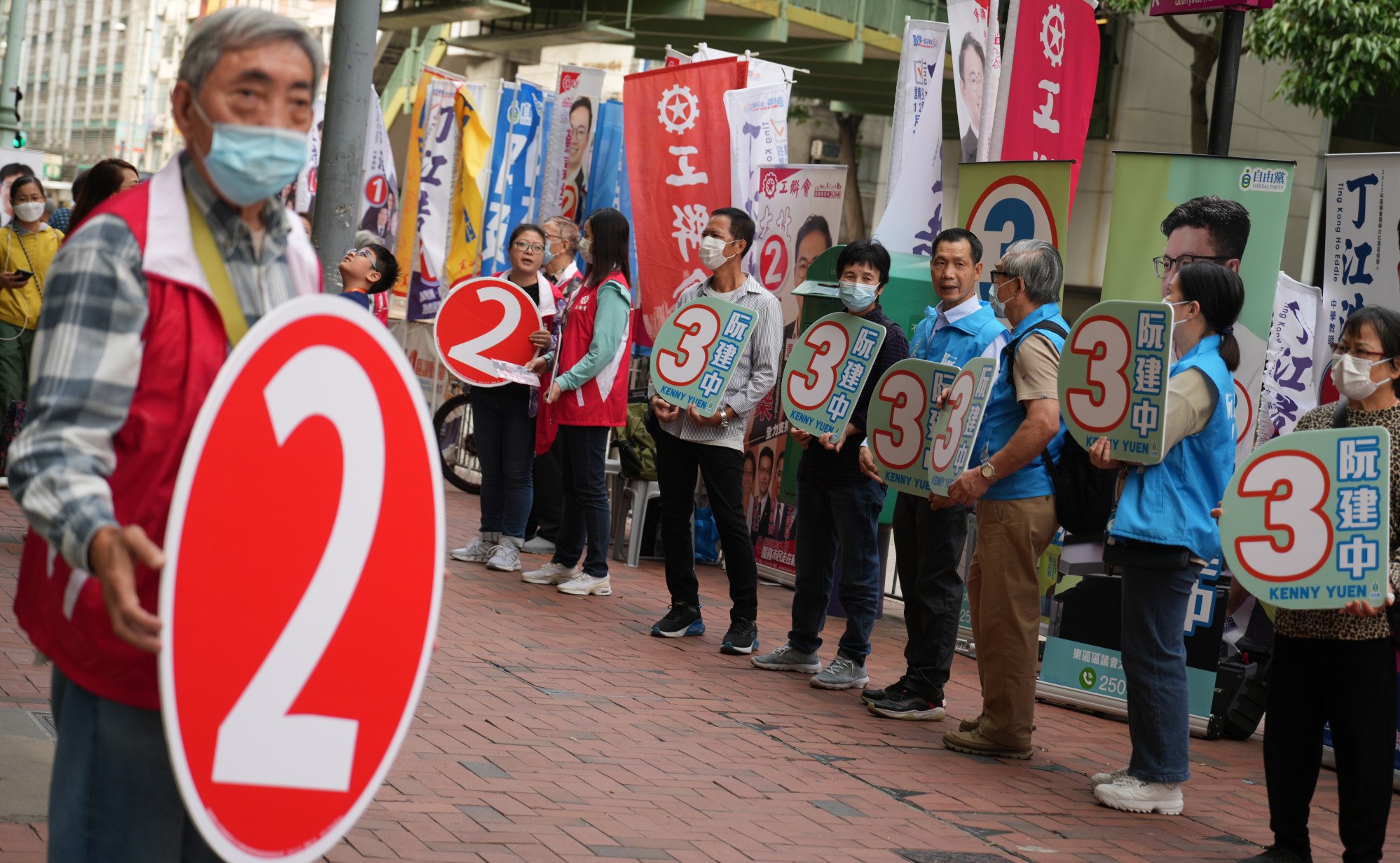
The day began with senior officials arriving at polling stations to cast their ballots and urging residents to vote. Several of the city’s second generation of tycoons were also seen taking part, including Li Ka-shing’s son, Richard Li Tzar-kai, the head of telecoms giant PCCW, and Sun Hung Kai’s managing director Raymond Kwok Ping-luen and his son Christopher Kwok Kai-wang
Elderly residents were among some of the first residents to cast their ballots, helped to the polling stations by care homes that received a one-off HK$20,000 (US$2,560) subsidy to help cover the cost of transport.
Retiree Lo Wai-tong, 63, who took a coach to the polling station, said she found this year’s election “offers less choice and is less competitive” after she voted for the opposition camp last time.
Young voters were noticeably absent outside a polling station in Sheung Shui near mainland China, one of two the government had set up to cater to Hongkongers living over the border. Most of the residents being brought in government-organised shuttle buses were elderly.
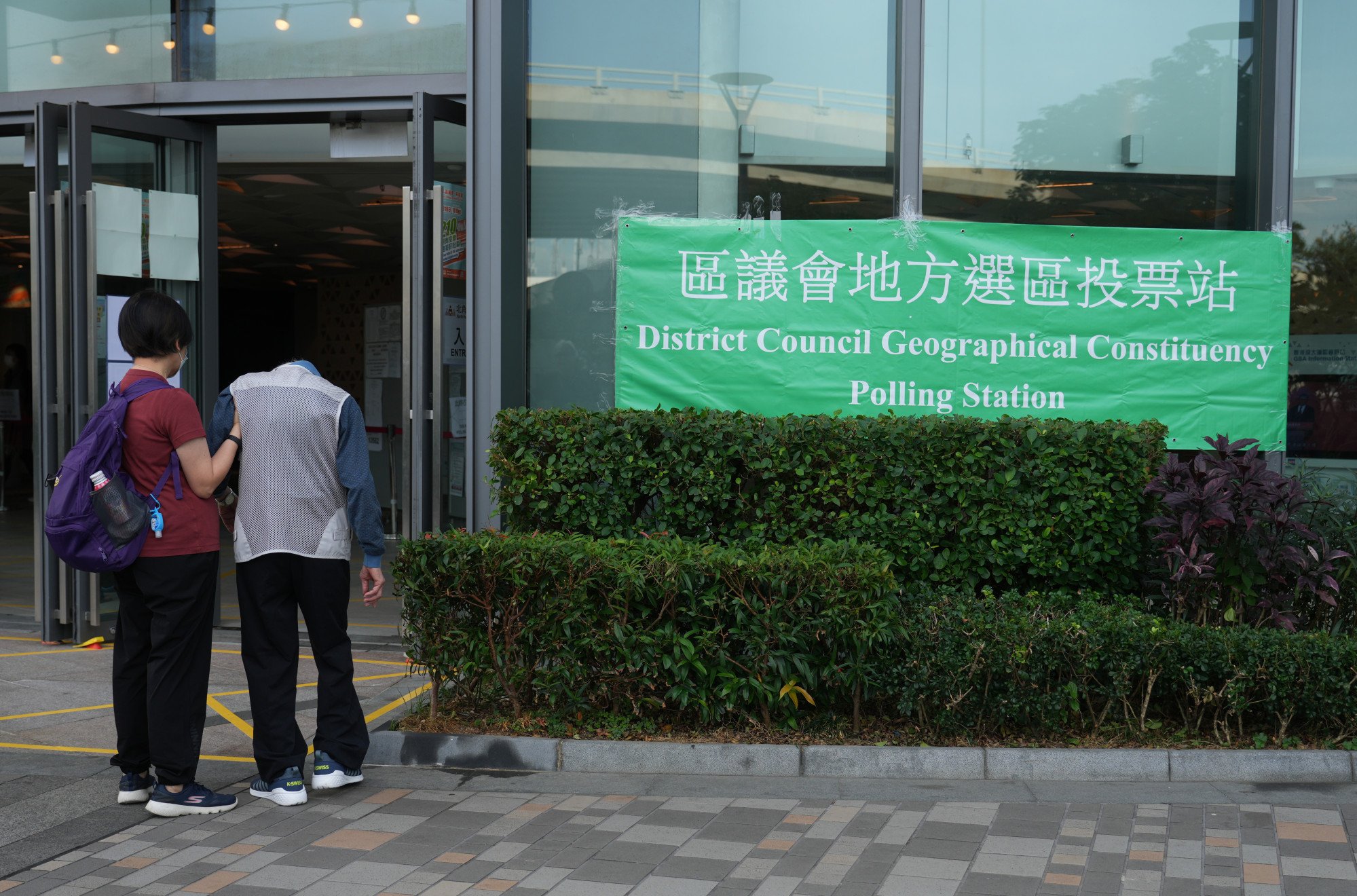
Casting his vote, public servant Philip Lam said he felt the lack of political diversity among contenders had discouraged young residents from taking part.
“Those advertisements work fine for the elderly, but not young Hong Kong people,” the 30-year-old said. “There are significantly fewer democratic activists this year, which may reduce the voting enthusiasm among young people.”
Roundtable founder and lawmaker Michael Tien Puk-sun said the low turnout could be linked to Hongkongers’ doubts over the future of the district councils.
“People are confused about whether their efforts to vote will create a district council that really helps the community,” he said.
A visual guide to Hong Kong’s 2023 district council election
Lau Siu-kai, a consultant for Beijing’s semi-official Chinese Association of Hong Kong and Macau Studies think tank, said the Legislative Council election was more important to Hongkongers than the district council poll.
“I believe the central government would accept a turnout rate of around 30 per cent for the district council poll. The Hong Kong government should also earn credit, as it is quite a good outcome already,” he said, adding the rate would be higher in the next poll as patriotic forces continued to expand.
John Burns, an honorary professor at the department of politics and public administration at the University of Hong Kong, said the government’s unprecedented campaign to mobilise voters “could have worked both ways: encouraging some, but turning off others”.
“Apparently the government perceived that if there was no big push, turnout could be unacceptably low,” he said.
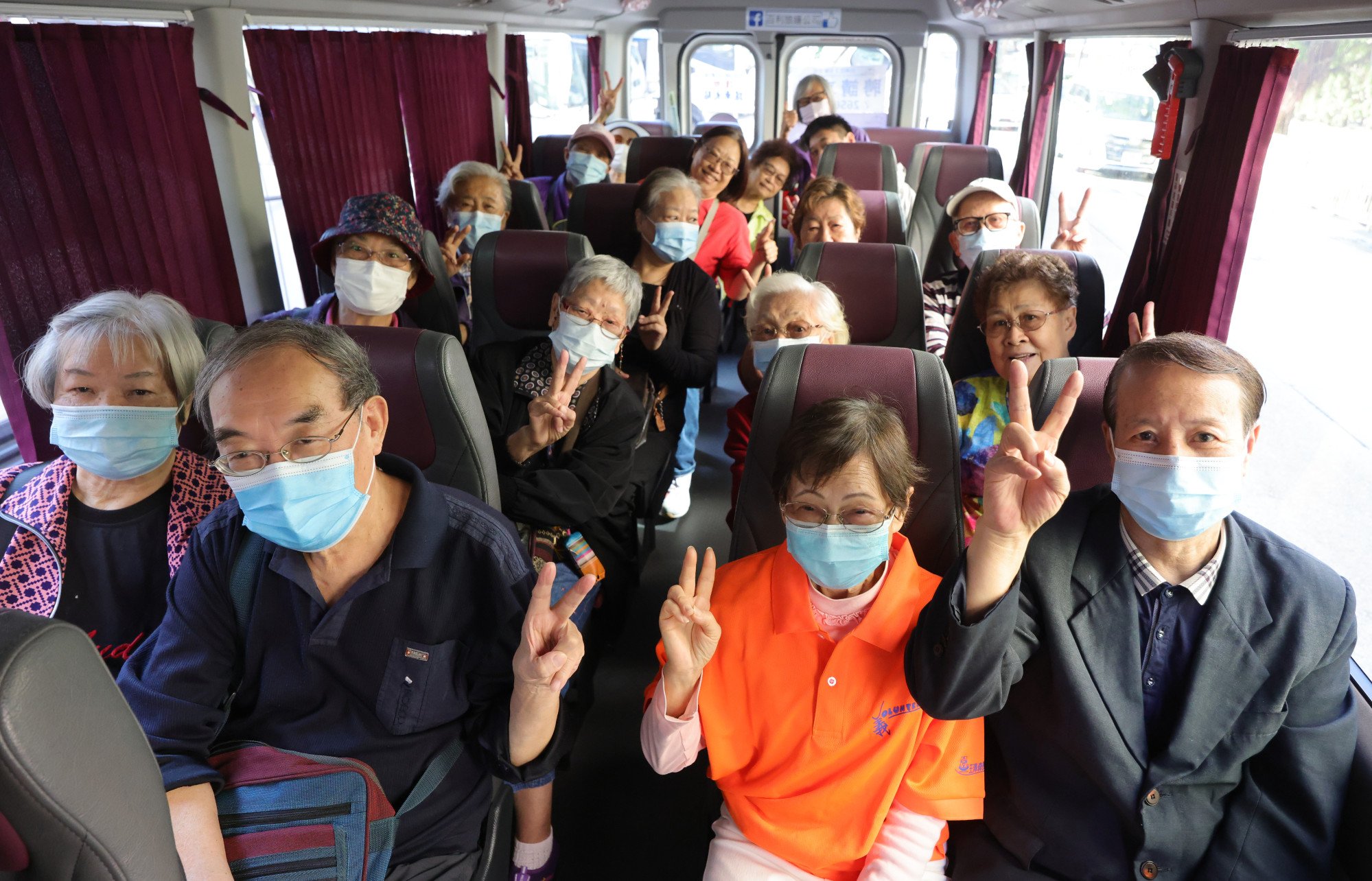
Sunday’s contest was not Hong Kong’s first “patriots-only” election. Voters had a taste of the new normal in the Legco poll two years ago that similarly did not feature any opposition candidates and which drew 30.2 per cent of all registered voters, a record low for a legislative election.
This year the government distributed thank-you cards to voters for the first time, but authorities dismissed the suggestion that civil servants had to use them as proof of taking part.
Hong Kong district council election candidates confront apathy, public confusion
Outside one polling station in Sheung Wan, financial services worker Karen Su, 30, paused for a moment and took a picture of her card. The first-time voter said she planned to share the photo on the Chinese social media app WeChat.
“There’s a sense of responsibility as a citizen,” she said. “I’m sharing it as it’s quite meaningful. I have never done this before.”
The Independent Commission Against Corruption arrested three residents, two aged 41 and one 51, for allegedly inciting others online to cast invalid ballots or refrain from voting.
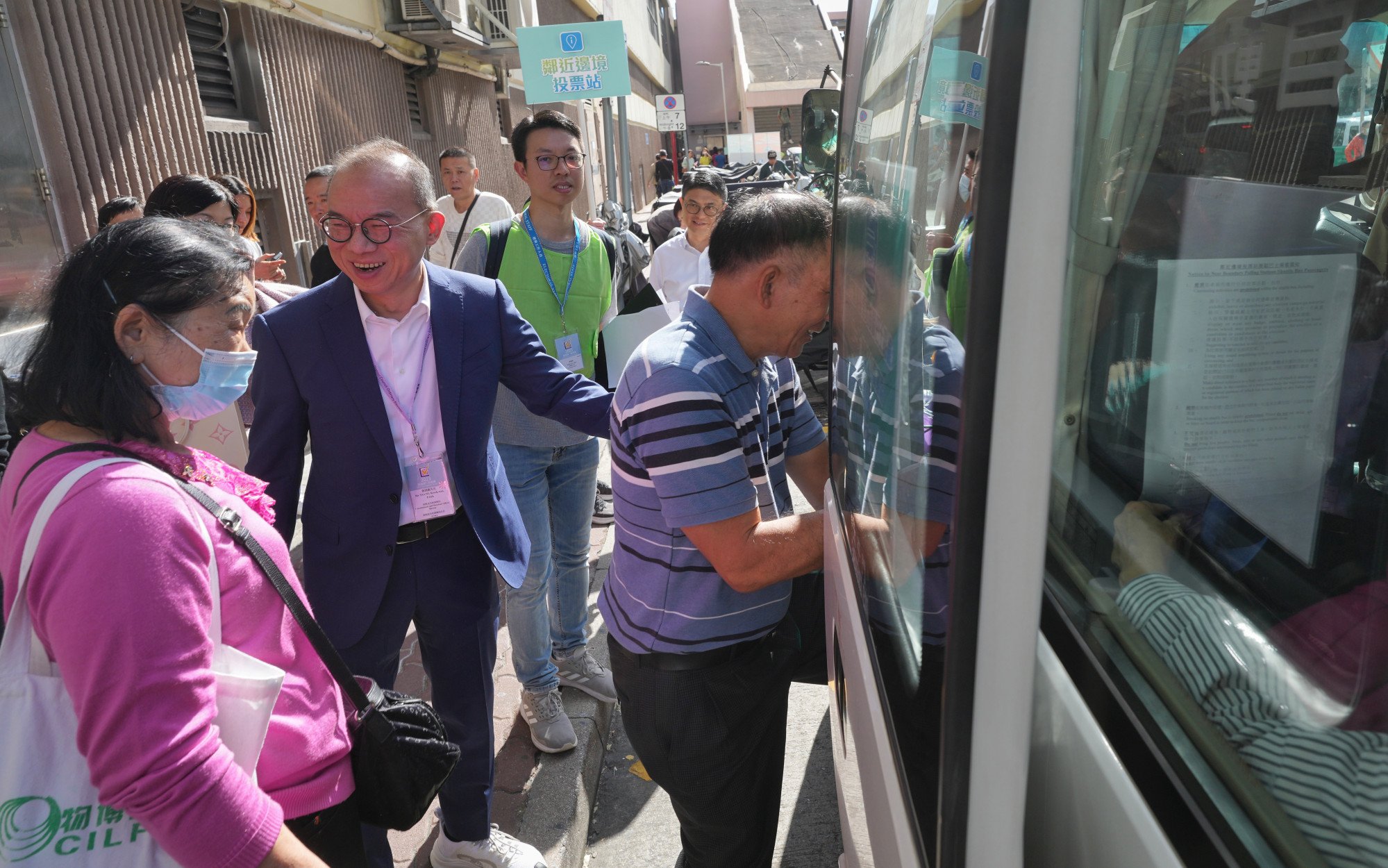
Three activists from the League of Social Democrats, including chairwoman Chan Po-ying, vice-chairman Dickson Chau Ka-fat and member Yu Wai-pan, were also arrested by the agency on suspicion of inciting others not to vote or to cast invalid ballots after the trio were stopped and questioned by police in Central.
“The government did not learn their lessons and make changes,” it said. “They used the election reform to exclude the pan-democratic camp.”
Additional reporting by Willa Wu and Sophie Chew